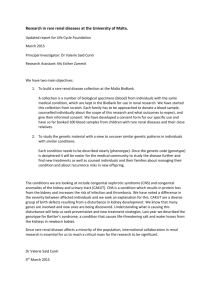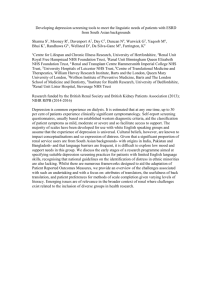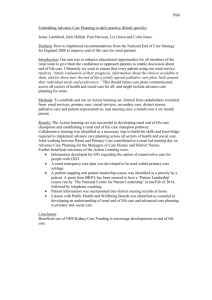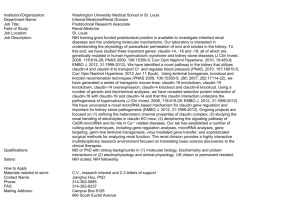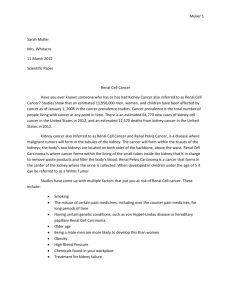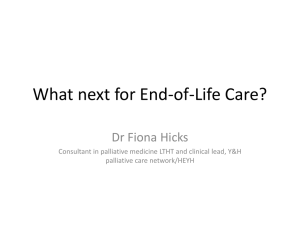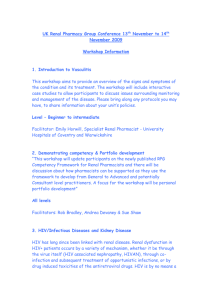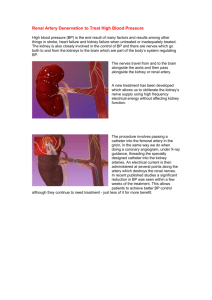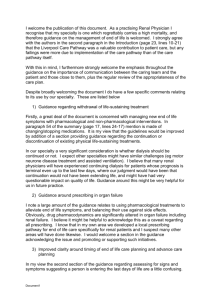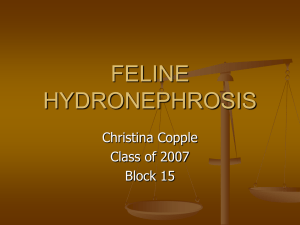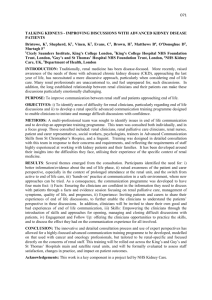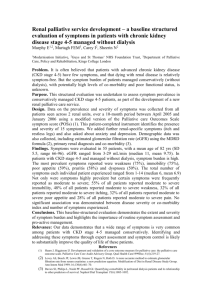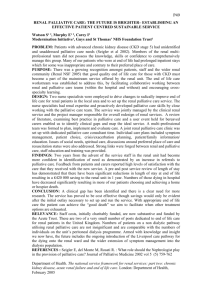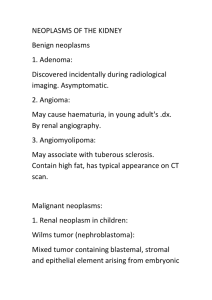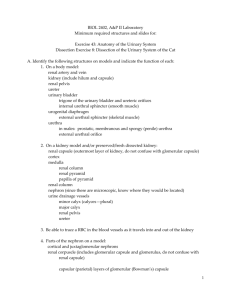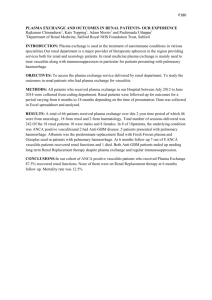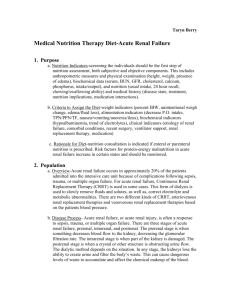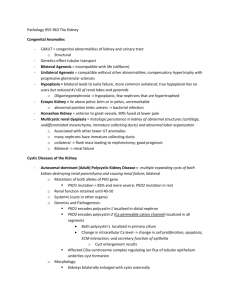Background - British Renal Society
advertisement
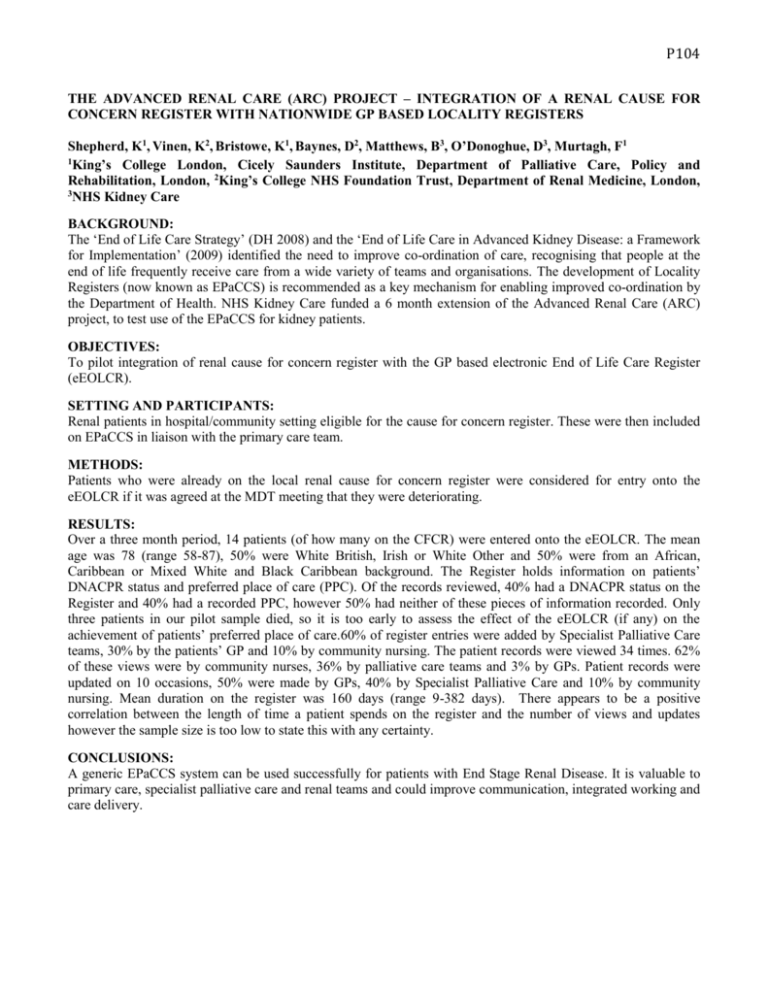
P104 THE ADVANCED RENAL CARE (ARC) PROJECT – INTEGRATION OF A RENAL CAUSE FOR CONCERN REGISTER WITH NATIONWIDE GP BASED LOCALITY REGISTERS Shepherd, K1, Vinen, K2, Bristowe, K1, Baynes, D2, Matthews, B3, O’Donoghue, D3, Murtagh, F1 1 King’s College London, Cicely Saunders Institute, Department of Palliative Care, Policy and Rehabilitation, London, 2King’s College NHS Foundation Trust, Department of Renal Medicine, London, 3 NHS Kidney Care BACKGROUND: The ‘End of Life Care Strategy’ (DH 2008) and the ‘End of Life Care in Advanced Kidney Disease: a Framework for Implementation’ (2009) identified the need to improve co-ordination of care, recognising that people at the end of life frequently receive care from a wide variety of teams and organisations. The development of Locality Registers (now known as EPaCCS) is recommended as a key mechanism for enabling improved co-ordination by the Department of Health. NHS Kidney Care funded a 6 month extension of the Advanced Renal Care (ARC) project, to test use of the EPaCCS for kidney patients. OBJECTIVES: To pilot integration of renal cause for concern register with the GP based electronic End of Life Care Register (eEOLCR). SETTING AND PARTICIPANTS: Renal patients in hospital/community setting eligible for the cause for concern register. These were then included on EPaCCS in liaison with the primary care team. METHODS: Patients who were already on the local renal cause for concern register were considered for entry onto the eEOLCR if it was agreed at the MDT meeting that they were deteriorating. RESULTS: Over a three month period, 14 patients (of how many on the CFCR) were entered onto the eEOLCR. The mean age was 78 (range 58-87), 50% were White British, Irish or White Other and 50% were from an African, Caribbean or Mixed White and Black Caribbean background. The Register holds information on patients’ DNACPR status and preferred place of care (PPC). Of the records reviewed, 40% had a DNACPR status on the Register and 40% had a recorded PPC, however 50% had neither of these pieces of information recorded. Only three patients in our pilot sample died, so it is too early to assess the effect of the eEOLCR (if any) on the achievement of patients’ preferred place of care.60% of register entries were added by Specialist Palliative Care teams, 30% by the patients’ GP and 10% by community nursing. The patient records were viewed 34 times. 62% of these views were by community nurses, 36% by palliative care teams and 3% by GPs. Patient records were updated on 10 occasions, 50% were made by GPs, 40% by Specialist Palliative Care and 10% by community nursing. Mean duration on the register was 160 days (range 9-382 days). There appears to be a positive correlation between the length of time a patient spends on the register and the number of views and updates however the sample size is too low to state this with any certainty. CONCLUSIONS: A generic EPaCCS system can be used successfully for patients with End Stage Renal Disease. It is valuable to primary care, specialist palliative care and renal teams and could improve communication, integrated working and care delivery.


